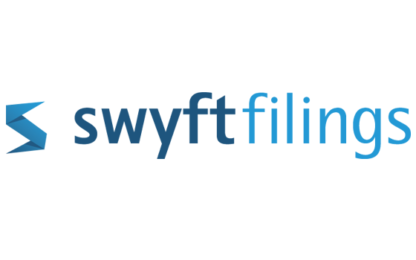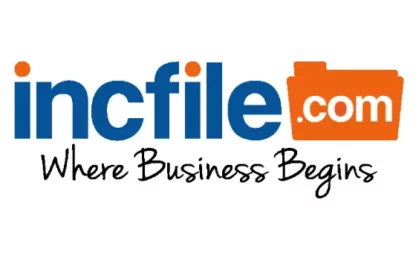What is an LLC License and How Can You Get It?
When someone decides to open a limited liability company, they often expect a number of benefits from the chosen business entity, including, first of all, flexibility in management, ownership, and profit distribution.
To properly establish an LLC, the future owner must submit a number of documents to the Secretary of State and pay a state filing fee (the cost varies from state to state). The most important registration document is "Articles of Organization," which are used to establish an LLC at the state level.
Once all the documents are filled out correctly, they will then have to be sent out (or mailed out) to the state department. After that, they will be reviewed and approved by the filing state's company registrar (or the Secretary of State). That way, the LLC owner will have a legal basis for creating an LLC.
One of the U.S. requirements to start an LLC in one state or another is to obtain a business license. In some cases, several licenses or permits may be required.
Thus, you may need a general-purpose business or a professional license, required by the state to legally provide your services or offer products to your clients. In this article, we shall talk about what license/permit options you may need before and after the registration.
LLC Licenses and Other Concepts
Each state has different licensing requirements depending on your business entity type and your sphere. Some US states don't have any requirements regarding any business licenses at all.
When talking about LLC licenses, we mean every possible type of it required under the law.
General state business licenses (the ones that give you permission to operate in the chosen state, no matter what type of business you have) are required in the following 11 states:
- Atlanta City, Georgia;
- Alabama (Business Privilege License);
- Alaska;
- Delaware;
- Hawaii (General Excise Tax License);
- Maine (certain cities);
- Maryland (required for most businesses);
- Some cities in Montana;
- Nevada (State Business License);
- North Caroline (certain cities);
- Tennessee (Standard Business License);
- Washington.
At the city/county level, a business license must be obtained in Maine, Massachusetts, Missouri, and Utah.
In other U.S. states, this type of license does not need to be obtained, but other types of business permits will be required for the company to be compliant.
It's necessary to distinguish between the terms "license" and "permit", because they are not the same thing. In fact, a permit is a different form of license, which is mainly related to public health care, issued for a shorter period of time than a license.
Thus, a license is a special type of business documentation, which gives the right to do business in a certain state of the country and is a legal confirmation of the existence of the business. Moreover, the presence of such a document increases the confidence of clients and partners, protects their rights, and regulates the work of the entity in general.
What Is an LLC General Business License
For an LLC, a GBL (General Business License) is a legal document that confirms that you have successfully set up an LLC. You may not need this document for every venture, but since it's one of the most frequent documents, it's worth understanding how business owners can get it. A GBL is typically issued by the Secretary of State or the Department of Revenue (depending on who is in charge of business registration in the state).
In Los Angeles, for example, it is issued by the Department of Finance as a form of tax registration and is required for all types of business entities. In Cook County (Illinois), a GBL is also required for all businesses, unless there's a special exemption, and it can be obtained from the Department of Revenue for the period of 2 years. In Maine, you can obtain a general business license from your city, and you can find the correct municipality through Maine.gov, a Local Government portal. In Tennessee, a GBL is not required at all if your LLC's gross revenues do not exceed $10,000.
Thus, to get a GBL for your LLC, you will need to initially prepare some information to file the Articles of Organization with the State Secretary.
That said, to properly create an LLC, you will first need to prepare the following information to include in your Articles of Organization:
- Choose an LLC name. Don't just pick the first one you like - make sure it's available. Using a business name that is already taken by another business is forbidden in all U.S. states. Moreover, your LLC name must be 100% unique and distinguishable from other business names. There are a number of other requirements to consider as well, e.g. no restricted words can be used and the name must include the phrase "limited liability company" or any of its abbreviations ("LLC," "L.L.C.," "LC" or "L.C.") at the end;
- Designate a registered agent. A registered agent is a person or an entity that receives service of process notices from the state, as well as accepts government correspondence and compliance-related documents on behalf of your company. This can be either a professional RA service or someone you trust. As the owner of your LLC, you can also be your own registered agent. Note that every LLC in the United State is required to have a resident agent with a registered physical office. Thus, make sure you provide the required contact data of your RA in the Articles of Organization;
- Fill out the Articles of Organization form. Some states allow you to register an LLC by downloading the form in PDF, filling it out, and sending it to the Secretary of State by mail. However, every year more states are switching to online registration, which is much more convenient, faster, and cheaper;
- Organizer signature and state filing fee. An organizer is a person who is responsible for signing and filing the Articles of Organization for the LLC. The organizer submits the formation documents to the state. An LLC organizer is not necessarily a member (owner) of the LLC - this can literally be any person who is authorized by you, as an owner of the LLC. The state filing fee should also be included.
During the registration process, it's important to obtain a number of other documents that will allow you to open your LLC's full potential. For example, if you have employees, you will need to get an EIN (which can be obtained for free on the IRS website) for your LLC. If you want to operate your business under a different, more convenient name, you will need to register a trade name (file a DBA). Lastly, if you want to avoid any possible disputes between your LLC members, you might want to prepare an Operating Agreement, i.e. an internal document within a company that will include all the necessary rules and regulations to consider in certain events.
Note that your registration documents must be filled out and submitted according to the state rules and regulations, and must not contain any errors, let alone spelling mistakes. Otherwise, you will not receive a positive response from the Secretary of State and your application will be rejected. In this case, you will need to fill out and submit your Articles of Organization again.
Most states will process your Certificate of Formation within 3-10 days (for online applications). However, if you file by mail, it will take much longer to register your LLC. You can also speed up the reviewing process by paying an extra fee for an expedited filing service. This way, you will be able to get the result in just one day or even 1 hour.
Once you receive your reviewed and approved Articles of Organization from the Secretary of State, your LLC becomes officially legal, and you can start your business operations in the state. This also means that the document can be used as the de facto license.
LLC License Types
The faster and easier way to figure out exactly what licenses and permits you need for your LLC is to ask for help from state and local authorities.
Depending on your location and type of business, your LLC business license type may vary. That said, you may need a city/town, county, state, or federal one to operate your LLC as a business. Thus, if you're engaged in mining and drilling, aviation, fishing/wildlife, nuclear energy, alcohol, import or selling, commercial fisheries, agriculture, firearms (incl. ammunition or explosives), maritime transportation, radio & television, or transportation, you will most likely need a federal license. The latter allows LLCs to operate within a certain state. In this case, the document shows that the company is controlled by the federal government.
If your LLC provides services in the restaurant business, childcare centers, hair and nail salons, dry cleaning, mechanics, insurance agencies, electricians, or plumbers, you will most likely need a local business license from your city or state government.
In any case, make sure you check with your city and state authorities to understand if you need a general license or any other additional ones.
In some cases, in addition to a GBL, a professional license will be required to run a business. Not all business niches fall under this, however, there are still many of them. Professional licenses are issued by a licensing agency in your state or city's licensing office. The process is beyond the control of the Secretary of State, however, you can still check with the Secretary for general information on where exactly to apply for a professional license.
Who needs a professional license to set up a professional limited liability company (PLLC)?
- Massage therapists;
- Nurses and physicians;
- Veterinarians;
- Acupuncturists and chiropractors;
- Lawyers;
- Building contractors;
- Dentists;
- Physicians;
- Accountants.
The cost of a professional license varies greatly and depends primarily on the type of your business. That said, you might be required to pay from $10 to $1000 to get your document. To this amount, you should also add the cost of your license renewal, since it's only issued for a certain period of time.
Here are some other types of licenses that may be relevant to your business:
- Health and Safety Permits. You may want to get your LLC inspected or obtain a permit from the local fire department if your business is somehow related to flammable objects. Such a license is typically required if your clients visit your home to conduct business. However, if you simply provide your services or sell products via the Internet and don't keep potentially hazardous products in your home, you will most likely not need such a license;
The only time you might need this type of eco-license is if you're a food and beverage wholesaler or retailer. In any case, you can always check with your local state environmental agency/department to find out if your LLC requires any kind of environmental inspection or permit to provide your services or products.
- Sign permit. A business can't just create its own creative signage to advertise its services or products and attract the attention of potential customers. To be eligible, a special permit must be obtained from your local Department of Planning and Development. The point is that you must remain compliant with all your local regulations in this matter. Thus, you want to make sure that your business sign's size, type, lighting (if any), and location are legal and allowed in your state/city. If you rent a house and want to put a business sign on it, you will need to consult with your landlord first;
- Sales tax license (AKA "seller’s permit" or "sales tax permit," can also be part of the GBL). Before you open an LLC, you might want to consider getting a sales tax license. This license is required in some states for businesses to be authorized to collect sales tax from customers and remit the money to the state. A sales tax license can be obtained at the Department of Revenue, i.e. the same office where you get the GBL.
Of course, this is not a complete list of licenses and permits you may need to run a successful business. Therefore, we recommend that you check with your state/county government agencies to specify this information and see if you need any type of special license for your LLC.
How to Get a License: Examples
To get a business license, you can apply online or by mail. Each state has its own nuances to consider in this regard. Moreover, certain differences can also be noticed at the city level.
For example, in Utah, a general business operating license is acquired at the city or county level through a special application online or by mail through the following sequence of steps:
- Submitting an application to your local municipal agency;
- Obtaining an activity number and verifying it;
- Sending the inspection report to the city department along with the paid receipt.
Some states have given up accepting documents by mail altogether. For example, when a person wants to get a professional license in Delaware, they need to register on the DELPROS website, and only then submit the application. On the platform, you can track the status of the application as well as download and print your approved documents.
Basic Instructions on Obtaining a Business License
Let's highlight the 5 main steps to getting a license, which all owners of limited liability companies will have to consider, regardless of where they plan to conduct their commercial activities.
Note that we do not take into account the period of LLC registration through the submission of constituent documents. The process has already been described above, and you will have to go through it before getting all the necessary permits and licenses.
Determine License Types
Previously, we have outlined the types of documents that license the operation of this or that business, namely:
- General business license (GBL);
- State, local, or federal licenses;
- Sales tax license;
- Professional license;
- Other permits and licenses.
To get a business license (except GBL), you will need an EIN (a Tax ID 9-digit number that confirms you're a legally established business), which can be obtained from the IRS (Internal Revenue Service) website by filling out the online application.
You may also need one or more additional documents, depending on the niche and the features of your business. Note that the requirements for the number of licenses/permits are mostly influenced by the primary location of your business activities.
Therefore, look for the right options for you at the appropriate organizations. These entities include the Department of Business and Professional Licensing, the SBA (U.S. Small Business Administration), city government, and your state's Department of Revenue (and Enterprise Services) or Division of Corporations.
Price and Timing
Sometimes, you can get your license for free, but the average price range is around $50-$100. Some will cost considerably more than others and may reach several thousand dollars. This applies more to special industry or professional licenses.
When calculating, you should also consider the cost and period of your license renewal. Note that not all business licenses must be renewed, and some of them will remain valid for as long as your business exists - you will only need to pay a one-time fee and that's all. However, some will need to be renewed every year or few. For example, certain business licenses are issued for a period of 2-5 years while others require a compliance update every year.
A business that has not gone through the renewal procedure and continues to operate may as a result receive a penalty, subpoena, or even lose the possibility to provide its services/products in the sphere.
Getting a business license from your state government can take anywhere from a few days to several months. It all depends on the complexity of the licensing process, your business location, and your industry. What's more, each state has its own deadlines for each type of business license. Thus, you can get some licenses in just a few days or almost instantly, while to get others, you will have to wait up to 6 months.
Not that sometimes, your state's license bureau (AKA the Department of Business and Professional Regulation) will offer the expedited filing service for an additional "rush" fee, if you need your business license ASAP.
Whatever you choose, make sure you know exactly which licenses and permits you need for your LLC before starting your business operations.
Comply with Requirements
When applying, make sure you do everything right and don't violate legal requirements. Ideally, you should consult professional attorneys in your area initially to make sure you meet all the rules and don't miss any important details.
Basically, you will need to do the following steps:
- Determine which license(s) you need. If necessary, contact a business lawyer to help determine and file the necessary paperwork and licenses;
- Register on your state’s Secretary of State website. This can also be the Department of Revenue or similar government agency that provides business licenses for LLCs;
- Include a state business registration certificate (an EIN or a DBA) on your business license application;
- Describe your business, state the purpose(s) of your LLC;
- Confirm your tax status;
- List members and managers of your LLC;
- Provide contacts (registered office address) and details of your registered agent;
- Include a receipt that confirms that you have paid the necessary fee.
In some cases, the government will also require additional information. For example, surety or professional qualifications of LLC owners/key personnel.
Fill Out and Submit Your Application
When all the necessary information has been prepared and thoroughly verified, you can proceed to fill out the necessary forms. In doing so, take into account how you must submit the paperwork.
For example, sometimes, simply filling out the required form online and confirming the submission is not enough - you may also need a few extra signatures or notarization. This also depends a lot on the laws and regulations of the state or city in which you plan to do your business.
Make sure all of the fields on the form are filled out correctly. If there is a mistake, the government may reject the documents, and your state filing fee will not be refunded. As a result, not only will you have to correct everything and re-send your documents again but you will also have to re-pay the fee.
Get Your Business License
Now that you have prepared and submitted your application, all that remains is to wait to get your official results. You can track the process of approval at the state's website, where you filled out the form (if there is such a possibility).
It should also be noted that not every business license is easy to obtain, even if it's issued in your state. Sometimes, the state limits the number of licenses issued, which can cause you to wait longer.
For example, if only 50 liquor licenses are available in your city, the state may issue exactly that number for a certain period. If the limit on liquor licenses is exhausted, then you will have to wait in line.
After Receiving Your License
Now that you have the required document that allows you to conduct a certain type of business activity in the state on hand, here's what you should do next.
The first thing to do is to mark the expiration date of your license on your calendar. This way, you will know when you need to apply for renewal.
Keep in mind that staying compliant with licensing requirements is crucial in any US state to avoid getting any penalties or even losing your business.
LLC License Meaning and Why You Need One
Limited liability companies have quite a few advantages that influence most entrepreneurs' decision to choose this particular entity type. Forming an LLC is fairly easy, especially, if you choose to hire a professional third-party service that will prepare the required information and file the paperwork with the state.
In addition to taking care of your LLC registration, you will also need to do thorough research on any additional licenses that might be required from you by the state.
Each type of license has a specific purpose, and each license helps structure and regulate different types of commercial activities, which allows firms to operate safely within the law.
Here are some of the purposes a business license can help you achieve:
- Protecting and building trust. Business licenses help not only protect LLC members, but also prove to clients/employees that the business is conducted legally, and thus, build credibility for the brand;
- Empowerment. There are certain types of licenses that help own or control copyrights. For example, the Creative Commons license;
- Funding. Often, startups and small businesses need to attract investors. And an appropriate government document will help look more appealing in the eyes of the latter by demonstrating the legitimacy of the business activity.
The main purpose of business licenses is to regulate businesses and their activities in order to ensure a healthy environment and protect the rights/interests of both clients and members of the LLC.
It is for these reasons that the U.S. government, like in any other country, has formed a series of rules and laws regarding licenses and permits.
Conclusion
Each state, city, or county is wholly or partially unique in its requirements as to how business licenses can be obtained. The same goes for the number of such licenses for a particular business to be eligible and legally conduct any business operations.
The process for obtaining most licenses is not complicated, which means it will be easy to handle on your own. If there are many complex requirements and rules to consider, we'd recommend your consult with a lawyer so that no complications arise when submitting your documents.
To find out your required LLC license meaning, as well as the cost/timing information, you can check with the Department of Business Licensing or the Secretary of State. We are sure that with professional support, you will get your results much faster and easier.
That said, we wish you the best of luck with obtaining your license and growing your business!





